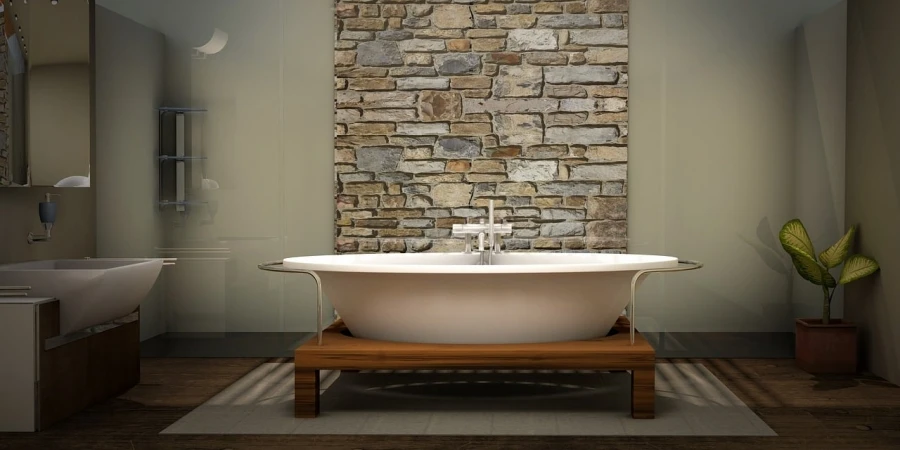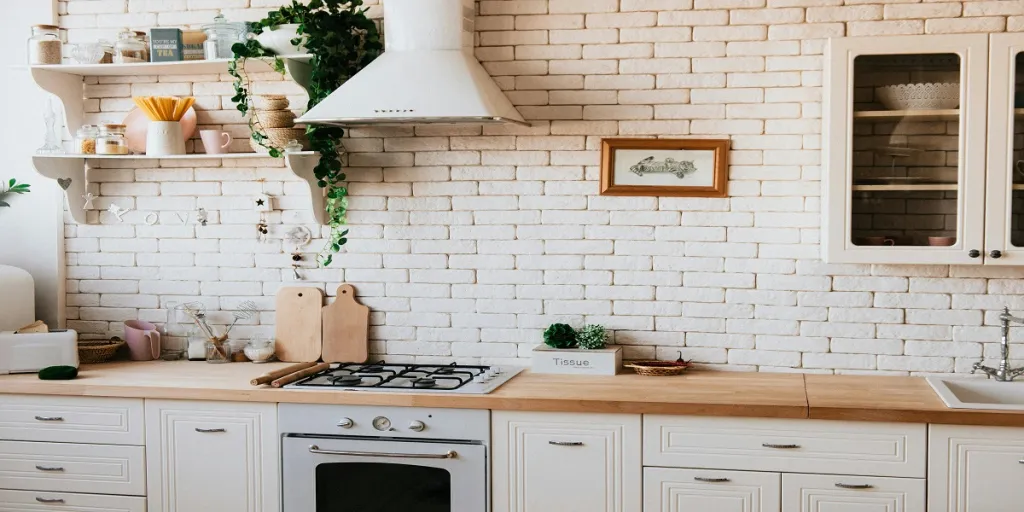Table of Contents
● Introduction
● Market overview
● Key technology and design innovations
● Top-selling models driving market trends
● Conclusion
Introduction
The market for bathroom products is currently experiencing a shift due to the progress in smart technology and the use of sustainable materials and creative designs. As customers increasingly look for enhanced features, eco-conscious options, and attractive fixtures in their products, businesses operating in this sector must adjust to cater to these changing preferences. This piece explores the developments and shifts in the market landscape, offering a detailed examination tailored for industry experts and online sellers. The market is expected to grow from $109.53 billion in 2023 to $189.37 billion by 2028 due to factors such as urbanization and increasing health consciousness. This drives the demand for smart home products, bathroom goods innovation, and top-selling items. Our analysis provides insight into top firms and innovations making new waves in the industry. These trends and advancements will meet consumers’ evolving needs and help them thrive in the competitive market for bathroom products.
Market overview
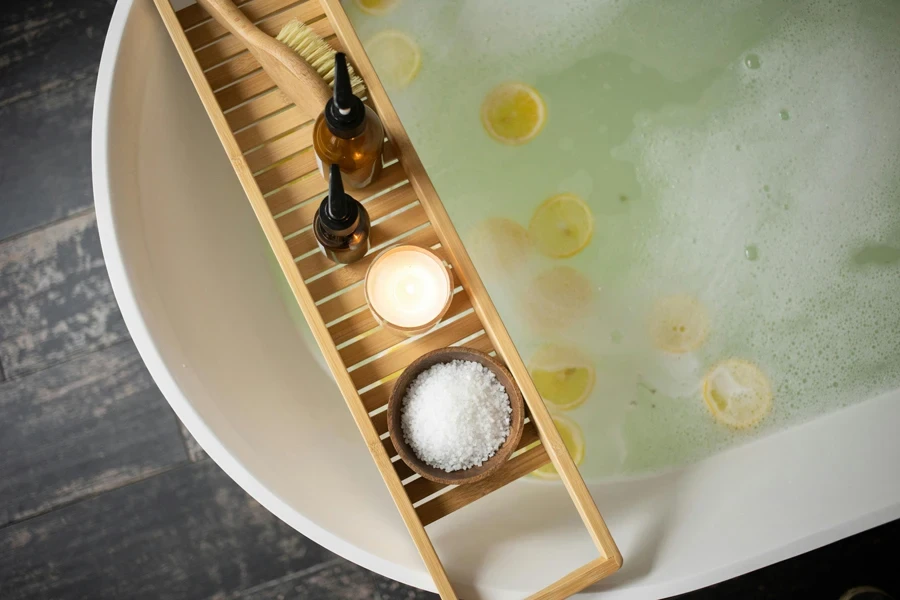
Market scale and growth
According to The Business Research Company, the worldwide market for bathroom products is expected to grow over the next few years; it is predicted to increase from $109.53 billion in 2023 to $189.37 billion by 2028, with an annual growth rate of 11.6%. This expansion is driven by factors such as urbanization and consumers’ increasing focus on health and wellness, along with the adoption of smart home technology trends in bathrooms. The trend toward urban living is causing a surge in both residential and commercial construction activities, fueling the demand for bathroom products—based on information from the World Bank statistics report, people living in urban areas in South Asia is projected to increase by 250 million by the year 2030, showing a si, significant potential market for bathroom products in that region alone. Furthermore, as individuals increasingly focus on their health and well-being concerns, there is a growing interest in seeking environmentally friendly bathroom solutions, contributing to expanding the market. The introduction of touchless faucets, self-cleaning toilets, and water-saving showers has been well received, indicating a rising demand for convenient and sustainable bathroom amenities.
Market shares and changes
In bathroom products, market dominance lies in North America and Europe. Their footing, backed by a well-developed infrastructure and higher disposable incomes, sets them apart. The Asia Pacific region is gearing up for expansion in the foreseeable future. From Technavio’s insights, the APAC market is projected to play a role in the global market growth with a 42% contribution during the forecasted period. This growth surge is fueled by urbanization, lifted living standards, and heightened construction endeavors in nations like China, India, and Indonesia. A noticeable increase in the use of sales channels recently due to the rise of e-commerce activities, as reported by Allied Market Research, stating that the global e-commerce market for bathroom accessories is expected to grow steadily at a rate of 6.46% between 2023 and 2027. This transition towards retail platforms gives customers convenient access to various bathroom items and helps expand the market while creating chances for both new players and well-known brands. The ease of shopping, competitive prices, and a wide range of products change how consumers buy things and positively impact the expansion of markets.
Key design and material innovations
The market for bathroom products has been transformed by design and new materials that improve functionality and appearance significantly. Cutting-edge technology plays a role in this evolution, with water-saving fixtures and innovative materials leading the way in driving this change forward. Smart toilets, such as mirrors, digital faucets, and environmentally friendly showers, are becoming increasingly popular due to their practicality and environmentally friendly features. Moreover, the introduction of materials such as self-cleaning surfaces, durable porcelain, and stylish concealed cisterns are establishing new benchmarks within the industry. The progressions in technology fuel the expansion of the market. Meet the preferences of today’s consumers who seek both effectiveness and aesthetics.
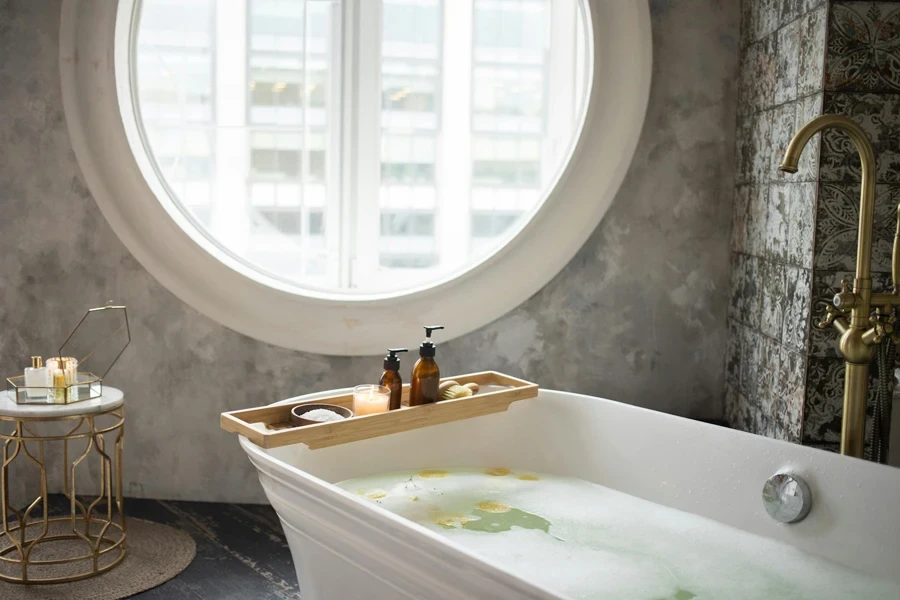
Smart bathroom products
Incorporating technology into bathroom fixtures revolutionizes how people engage with their bathroom environments. Smart toilets are gaining traction for their features like touchless control options, voice activation capabilities, water-saving settings, and connectivity with mobile apps. These cutting-edge toilets improve user comfort and support eco-friendly practices, which are increasingly important in today’s aware society. According to Allied Market Research findings, smart toilets come equipped with automated flushing mechanisms, bidet functions, adjustable water pressure settings, and heated seats for comfort and cleanliness. Mirrors are a clever way to enhance your bathroom by showing news and weather updates while connecting with your home security system for a more engaging and convenient bathroom experience.
Water-conserving fixtures
Water preservation is an aspect of contemporary bathroom planning trends where advanced faucets and environmentally friendly showers are at the forefront. Digests are designed with sensors to promote cleanliness by minimizing physical contact and reducing water wastage. These faucets incorporate motion sensors that detect hand gestures to regulate water flow without requiring contact with the handles – an especially advantageous feature in public facilities and homes. Friendly showers with digital controls provide adjustable water flow and temperature options to enhance water efficiency and optimal usage. As per a report by Technavio, shower systems are on the rise due to their capability of delivering personalized comfort while saving water resources, which aligns with the overall increasing focus on sustainability.
Innovative materials
Progress in material technology has also contributed significantly to the development of bathroom products today. Self-cleaning toilets are crafted using materials that require minimal upkeep and ensure optimal hygiene standards by preventing the accumulation of bacteria and dirt. Additionally, designer wash basins in vibrant colors and distinctive shapes are manufactured from robust materials such as porcelain and concrete for aesthetic charm and lasting durability. Concealed cisterns are gaining popularity due to their appearance and innovative flushing systems that enhance water conservation efforts. Washrooms and Beyond suggests incorporating materials like concrete and porcelain in bathroom fixtures boosts durability and adds a contemporary and chic touch. An emphasis on smart technology and eco-friendly practices alongside innovative materials is revolutionizing the market for bathroom products by fueling interest in functional and sustainable options. These advancements cater to the changing preferences of consumers while establishing benchmarks within the industry.
Top sellers driving market trends
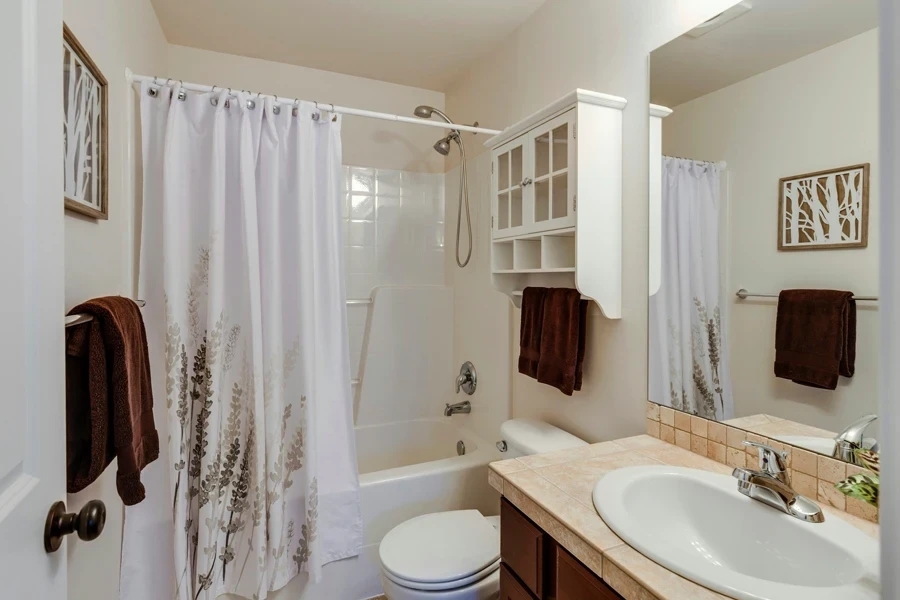
In the bathroom products market, a handful of companies whose inventive ideas and strategic tactics establish fresh norms for the industry landscape. These prominent brands steer market trends through technologies, economically viable strategies, and aesthetically pleasing product offerings. Distinguished entities like TOTO Ltd., Kohler Co, LXIL Corporation, and Delta Faucet Company lead the way, prompting changes in consumer choices and market behaviors with their state-of-the-art solutions.
Kohler Co.
The latest smart bathroom solutions and eco-friendly products from Kohler Co. are making waves in the market and are currently leading the competition. The Business Research Company reports that Kohler’s range features toilets with smart capabilities, digital mirrors, and water-efficient faucets tailored to today’s need for convenience and sustainability. With a focus on blending cutting-edge technology with aesthetics, Kohler has solidified its position as a trendsetter consistently by surpassing industry standards.
TOTO Ltd.
Known for its state-of-the-art toilets and faucets that emphasize water conservation and user comfort is TOTO Ltd. showcasing features such as automated flushing systems and bidet functionalities along with heated seating options to improve cleanliness and convenience of users’ experiences as mentioned by Allied Market Research in their report on TOTOs water saving solutions reflecting the increasing concern among consumers towards environmental sustainability thereby positioning their products as preferred options, for both residential and commercial settings.

Roca Sanitario S.A.
Roca Sanitario S.A. provides various bathroom products that focus on beauty and usefulness. They offer wash basins, fashionable faucets, and modern bathroom furniture that enhance the aesthetic appeal of today’s bathrooms. As per Washrooms and Beyond, Roca’s items are known for their quality and design, serving as a choice for customers looking for a blend of elegance and functionality.
LIXIL Corporation
According to the Allied Market Research report, the introduction of home technology by LIXIL Corporation revolutionized the integration of advanced bathroom fixtures in households across the globe. Their cutting-edge products, such as smart toilets and faucets, effortlessly connect to home automation systems, offering users improved control and convenience. This focus on innovative technology and user-centric designs solidifies LIXIL’s role as a key influencer on market directions.
Delta Faucet Company
Delta Faucet Company is well known for its faucet styles and touchless features, which are modern and innovative in design and functionality, as reported by Technavio. A well-respected source in the world of industry sector analysis. Their faucets include cutting-edge sensor technologies that enhance cleanliness and help in water conservation. This is a critical issue for many consumers today. Delta Faucet Company has successfully carved out a position amidst tough competition within bathroom products by prioritizing innovation and sustainability in its product development approach.
Conclusion

The market for bathroom products is changing due to the rise of smart technology, sustainable materials, and creative designs. These developments are reshaping the industry by improving functionality and aesthetics while meeting the rising consumer expectations for effectiveness and friendly features. As people increasingly look for products that offer both ease of use and sustainability, businesses must be aware of these trends to stay ahead of the competition. Professionals in the business world and online sellers must keep up with these ideas to cater to changing consumer preferences and remain competitive. Incorporating technologies like smart systems and water-efficient fixtures while utilizing high-quality materials is key to satisfying customers and securing lasting success in the market for bathroom products. Businesses that embrace these advancements will have an edge in seizing emerging opportunities and supporting the eco-friendly expansion of the industry. Companies can cultivate a devoted clientele and experience continuous growth in this ever-evolving sector by putting resources into state-of-the-art solutions and emphasizing responsibility.
